Convenience Store Woman by Sayaka Murata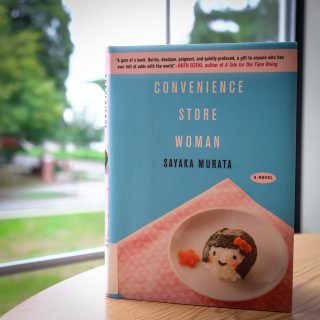
Keiko Furukura had always been considered a strange child, and her parents always worried how she would get on in the real world, so when she takes on a job in a convenience store while at university, they are delighted for her. For her part, in the convenience store she finds a predictable world mandated by the store manual, which dictates how the workers should act and what they should say, and she copies her coworkers’ style of dress and speech patterns so that she can play the part of a normal person. However, eighteen years later, at age 36, she is still in the same job, has never had a boyfriend, and has only few friends. She feels comfortable in her life, but is aware that she is not living up to society’s expectations and causing her family to worry about her. When a similarly alienated but cynical and bitter young man comes to work in the store, he will upset Keiko’s contented stasis—but will it be for the better?
Sayaka Murata brilliantly captures the atmosphere of the familiar convenience store that is so much part of life in Japan. With some laugh-out-loud moments prompted by the disconnect between Keiko’s thoughts and those of the people around her, she provides a sharp look at Japanese society and the pressure to conform, as well as penetrating insights into the female mind. Convenience Store Woman is a fresh, charming portrait of an unforgettable heroine that recalls Banana Yoshimoto, Han Kang, and Amélie.
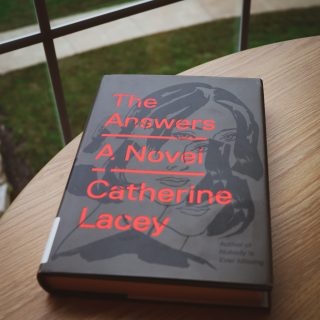 The Answers by Catherine Lacey
The Answers by Catherine Lacey
Mary Parsons is broke. Dead broke, really: between an onslaught of medical bills and a mountain of credit card debt, she has been pushed to the brink. Hounded by bill collectors and still plagued by the painful and bizarre symptoms that doctors couldn’t diagnose, Mary seeks relief from a holistic treatment called Pneuma Adaptive Kinesthesia―PAKing, for short. Miraculously, it works. But PAKing is prohibitively expensive. Like so many young adults trying to make ends meet in New York City, Mary scours Craigslist and bulletin boards for a second job, and eventually lands an interview for a high-paying gig that’s even stranger than her symptoms or the New Agey PAKing.
Mary’s new job title is Emotional Girlfriend in the “Girlfriend Experiment”―the brainchild of a wealthy and infamous actor, Kurt Sky, who has hired a team of biotech researchers to solve the problem of how to build and maintain the perfect romantic relationship, cast – ing himself as the experiment’s only constant. Around Kurt, several women orbit as his girlfriends with spe – cific functions. There’s a Maternal Girlfriend who folds his laundry, an Anger Girlfriend who fights with him, a Mundanity Girlfriend who just hangs around his loft, and a whole team of girlfriends to take care of Intimacy. With so little to lose, Mary falls headfirst into Kurt’s messy, ego-driven simulacrum of human connection.
Told in Catherine Lacey’s signature spiraling, hypnotic prose, The Answers is both a mesmerizing dive into the depths of one woman’s psyche and a critical look at the conventions and institutions that infiltrate our most personal, private moments. As Mary struggles to understand herself―her body, her city, the trials of her past, the uncertainty of her future―the reader must confront the impossible questions that fuel Catherine Lacey’s work: How do you measure love? Can you truly know someone else? Do we even know ourselves? And listen for Lacey’s uncanny answers.
The Optimistic Decade by Heather Abel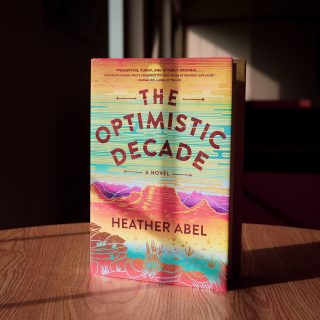
This entertaining and assured debut novel about a utopian summer camp and its charismatic leader asks smart questions about good intentions gone terribly wrong.
Framed by the oil shale bust and the real estate boom, by protests against Reagan and against the Gulf War, The Optimistic Decade takes us into the lives of five unforgettable characters and is a sweeping novel about idealism, love, class, and a piece of land that changes everyone who lives on it.
There is Caleb Silver, the beloved founder of the back-to-the-land camp Llamalo, who is determined to teach others to live simply. There are the ranchers, Don and his son, Donnie, who gave up their land to Caleb and who now want it back. There is Rebecca Silver, determined to become an activist like her father and undone by the spell of both Llamalo and new love; and there is David, a teenager who has turned Llamalo into his personal religion.
Heather Abel’s novel is a brilliant exploration of the bloom and fade of idealism and how it forever changes one’s life.
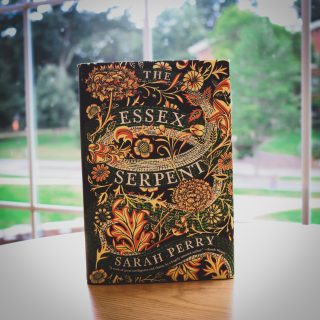 The Essex Serpent by Sarah Perry
The Essex Serpent by Sarah Perry
An exquisitely talented young British author makes her American debut with this rapturously acclaimed historical novel, set in late nineteenth-century England, about an intellectually minded young widow, a pious vicar, and a rumored mythical serpent that explores questions about science and religion, skepticism, and faith, independence and love.
When Cora Seaborne’s brilliant, domineering husband dies, she steps into her new life as a widow with as much relief as sadness: her marriage was not a happy one. Wed at nineteen, this woman of exceptional intelligence and curiosity was ill-suited for the role of society wife. Seeking refuge in fresh air and open space in the wake of the funeral, Cora leaves London for a visit to coastal Essex, accompanied by her inquisitive and obsessive eleven-year old son, Francis, and the boy’s nanny, Martha, her fiercely protective friend.
While admiring the sites, Cora learns of an intriguing rumor that has arisen further up the estuary, of a fearsome creature said to roam the marshes claiming human lives. After nearly 300 years, the mythical Essex Serpent is said to have returned, taking the life of a young man on New Year’s Eve. A keen amateur naturalist with no patience for religion or superstition, Cora is immediately enthralled, and certain that what the local people think is a magical sea beast may be a previously undiscovered species. Eager to investigate, she is introduced to local vicar William Ransome. Will, too, is suspicious of the rumors. But unlike Cora, this man of faith is convinced the rumors are caused by moral panic, a flight from true belief.
These seeming opposites who agree on nothing soon find themselves inexorably drawn together and torn apart—an intense relationship that will change both of their lives in ways entirely unexpected.
Hailed by Sarah Waters as “a work of great intelligence and charm, by a hugely talented author,” The Essex Serpent is “irresistible . . . you can feel the influences of Mary Shelley, Bram Stoker, Wilkie Collins, Charles Dickens, and Hilary Mantel channeled by Perry in some sort of Victorian séance. This is the best new novel I’ve read in years” (Daily Telegraph).
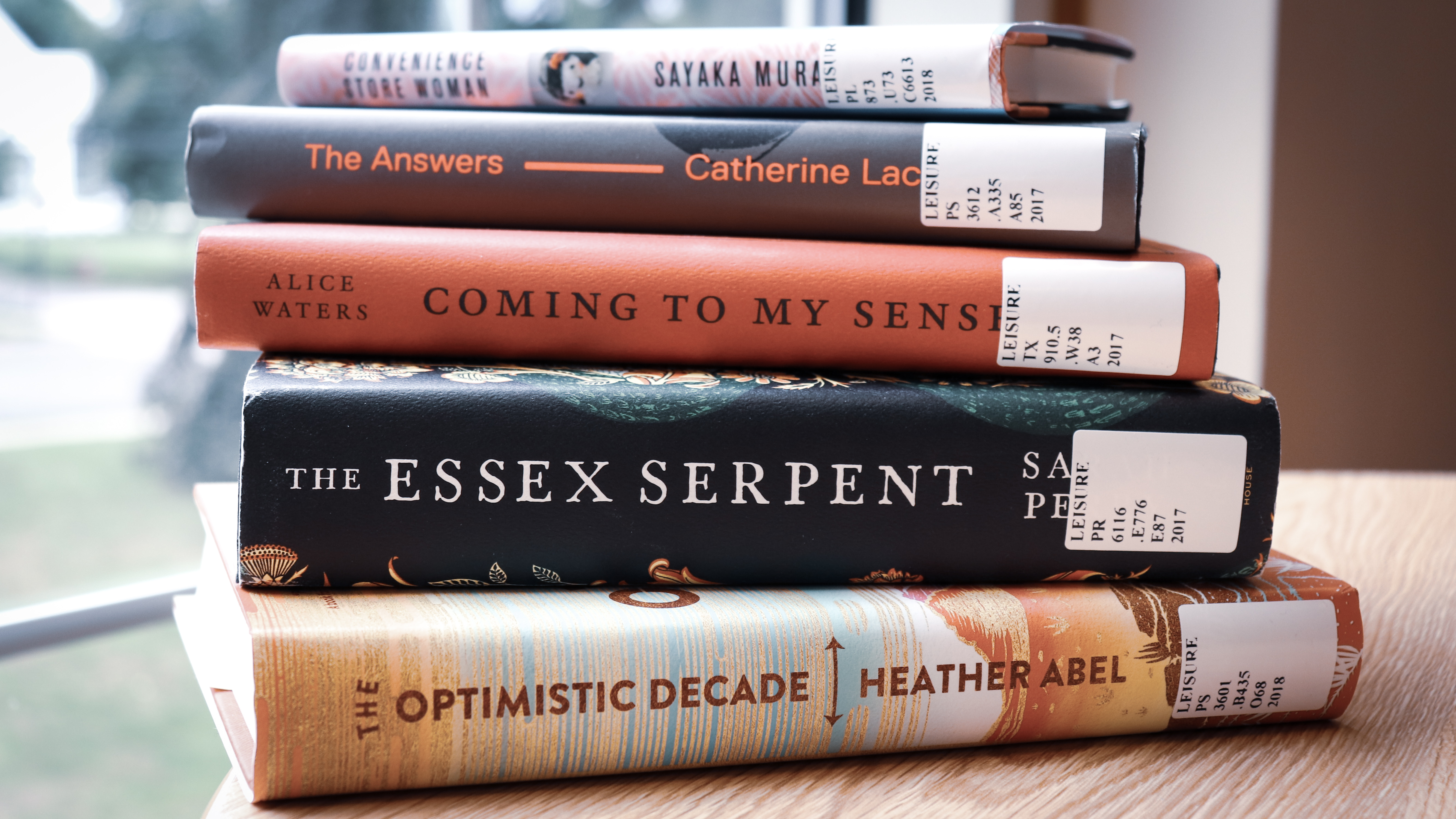
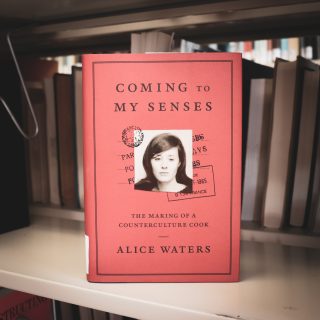
You must be logged in to post a comment.